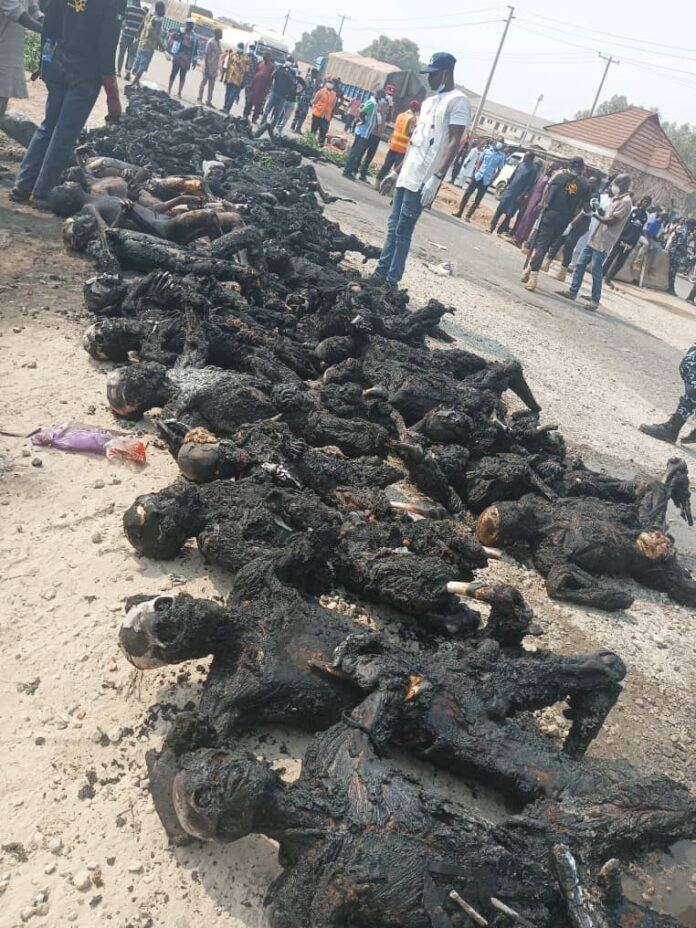By: Daure David
A heartbreaking disaster struck Niger State over the weekend when at least 70 people were killed and 56 residents sustain various degrees of injuries in a devastating fire triggered by a crashed petrol tanker. The accident occurred along a major Expressway in Dikko Junction between Niger State and Kaduna where the tanker, which was transporting large quantities of fuel, overturned and spilled its contents.
Eyewitnesses reported that several locals, including women and children, who were at the scene of the damaged tanker were affected. However, the situation took a deadly turn when a spark from one of the vehicles passing by ignited the fuel, causing a massive explosion and engulfing the area in flames. The fire spread quickly, leaving dozens dead and many others injured.
The victims, many of whom were believed to be Road users and residents, suffered severe burns as the flames consumed everything in their path. Emergency services arrived at the scene to find the area in chaos, with the intense heat making it difficult for rescue workers to reach those in need of help. Firefighters battled the blaze for hours, while ambulances transported the injured to local hospitals.
Niger State Governor, Umar Bago, expressed his deep sorrow over the tragedy, describing it as “a massive loss.” He urged the public to avoid engaging in hazardous activities around accidents involving dangerous materials, stressing the importance of adhering to safety guidelines. “We must learn to be more cautious and prevent such tragedies from occurring in the future,” he said.
The incident has raised concerns about the rising frequency of fuel-related accidents and it’s dangers, a problem not unique to Niger State but prevalent across many parts of Nigeria. With fuel prices soaring and economic challenges pushing many to desperation, incidents like these have tragically become more common.
Authorities have vowed to investigate the cause of the tanker crash and to implement stricter regulations to prevent future occurrences. Additionally, local leaders are calling for greater public awareness about the dangers of petrol disaster and the importance of community safety.
As the region mourns the loss of so many lives, many are left questioning how such a preventable disaster could have been avoided. The incident serves as a stark reminder of the risks associated with unsafe practices and the urgent need for better safety measures in Nigeria’s road transport system.







